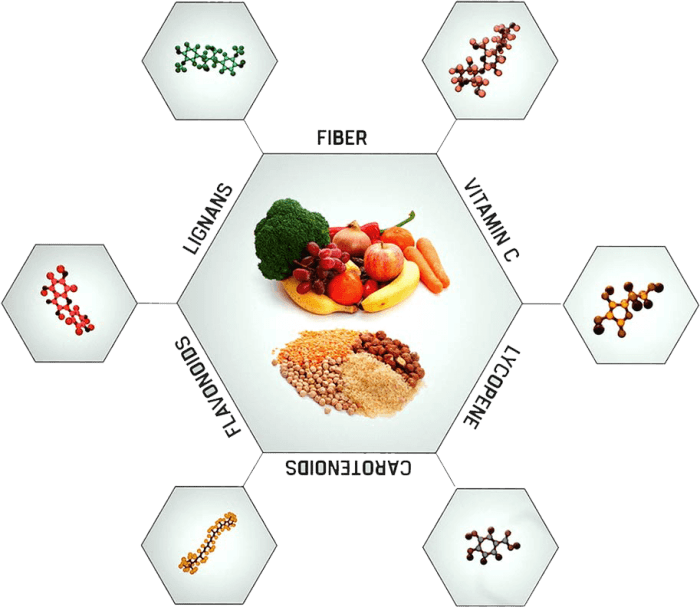Embark on an enlightening journey through the realm of dietary vitamin or mineral crossword, where the quest for knowledge intertwines with the intrigue of puzzles. This discourse delves into the depths of vitamins and minerals, unraveling their significance for our well-being while providing an arsenal of crossword clues and strategies to conquer the enigmatic world of crosswords.
Uncover the hidden connections between vitamins and minerals, their synergistic and antagonistic interactions, and the intricate web of their impact on our bodily functions. Discover the diverse dietary sources of these essential nutrients and delve into the complexities of vitamin and mineral supplements, empowering you to make informed decisions about your health.
Dietary Vitamin or Mineral Definitions

Vitamins and minerals are essential nutrients that the body cannot produce on its own and must be obtained from the diet. Vitamins are organic compounds that are required in small amounts for various metabolic processes, while minerals are inorganic elements that are also essential for health.
Common Dietary Vitamins
- Vitamin A: Supports vision, immune function, and skin health.
- Vitamin C: Acts as an antioxidant and supports collagen production.
- Vitamin D: Facilitates calcium absorption and bone health.
- Vitamin E: Protects cells from oxidative damage.
li>Vitamin K: Essential for blood clotting and bone health.
Common Dietary Minerals
- Calcium: Crucial for bone and teeth health.
- Iron: Carries oxygen throughout the body.
- Potassium: Regulates blood pressure and nerve function.
- Sodium: Maintains fluid balance and supports nerve and muscle function.
- Zinc: Supports immune function and cell growth.
Significance of Vitamins and Minerals
Vitamins and minerals play vital roles in maintaining overall health and well-being. They support various bodily functions, including:
- Energy production
- Metabolism
- Immune function
- Bone and tissue health
- Nervous system function
Crossword Puzzle Clues for Vitamins and Minerals

Crossword puzzles often include clues related to dietary vitamins and minerals. Solving these clues can require knowledge of their names, functions, and sources.
Common Crossword Puzzle Clues
- Clue:Essential nutrient that helps prevent scurvy Answer:Vitamin C
- Clue:Mineral involved in bone formation Answer:Calcium
- Clue:Vitamin that helps the body absorb iron Answer:Vitamin C
- Clue:Mineral that helps regulate blood pressure Answer:Potassium
- Clue:Vitamin that helps maintain healthy vision Answer:Vitamin A
Strategies for Solving Crossword Puzzles
Solving crossword puzzles involving vitamins and minerals can be facilitated by:
- Familiarizing yourself with common vitamins and minerals:Knowing their names, functions, and sources can help you guess the correct answer.
- Using cross-referencing:Look for other clues that may provide additional information about the vitamin or mineral in question.
- Considering the length of the answer:The number of squares allocated for the answer can give you an idea of the length of the vitamin or mineral name.
- Eliminating incorrect options:If you know that a certain vitamin or mineral does not fit the clue, eliminate it from consideration.
By employing these strategies, you can increase your chances of successfully solving crossword puzzle clues related to dietary vitamins and minerals.
Health Benefits of Dietary Vitamins and Minerals: Dietary Vitamin Or Mineral Crossword

Dietary vitamins and minerals are essential nutrients that play a crucial role in maintaining optimal health and well-being. They support various bodily functions, including metabolism, growth, immunity, and cognitive performance. A balanced intake of these nutrients through a healthy diet is essential for overall health.
Vitamins
Vitamins are organic compounds that cannot be synthesized by the body and must be obtained through the diet. They are classified into two groups: water-soluble and fat-soluble.
- Water-soluble vitamins(vitamin C, B vitamins) are easily absorbed and excreted, so regular intake is necessary.
- Fat-soluble vitamins(vitamins A, D, E, K) are stored in the body and can accumulate over time, so excessive intake should be avoided.
Minerals
Minerals are inorganic elements that are essential for various bodily functions. They can be classified into two groups: major minerals and trace minerals.
- Major minerals(calcium, phosphorus, potassium, sodium, chloride, magnesium) are needed in larger amounts and are involved in maintaining fluid balance, muscle function, and bone health.
- Trace minerals(iron, zinc, iodine, selenium, copper) are needed in smaller amounts and play roles in enzyme function, immune response, and thyroid hormone production.
Specific Health Benefits
Different vitamins and minerals provide specific health benefits:
- Vitamin C: Antioxidant, supports immune function, collagen production
- Vitamin D: Bone health, calcium absorption, immune function
- Vitamin E: Antioxidant, protects cells from damage
- Calcium: Bone health, muscle function, nerve transmission
- Iron: Oxygen transport, red blood cell production
- Zinc: Immune function, wound healing, cell growth
Dietary Sources
To ensure an adequate intake of vitamins and minerals, it is important to consume a balanced diet that includes a variety of foods from all food groups:
- Fruits and vegetables: Rich in vitamins A, C, E, and minerals
- Whole grains: Good sources of B vitamins, fiber, and minerals
- Lean protein: Provides B vitamins, iron, and zinc
- Dairy products: Excellent sources of calcium, vitamin D, and riboflavin
- Nuts and seeds: Contain vitamin E, magnesium, and zinc
Dietary Sources of Vitamins and Minerals
Obtaining a balanced intake of vitamins and minerals is crucial for optimal health. These micronutrients play diverse roles in bodily functions, ranging from energy metabolism to immune system support. Consuming a variety of nutrient-rich foods ensures adequate intake of these essential substances.
The table below provides a comprehensive overview of dietary sources of vitamins and minerals, including recommended daily intake values:
| Vitamin or Mineral | Food Sources | Recommended Daily Intake |
|---|---|---|
| Vitamin A | Liver, dairy products, eggs, carrots, spinach | 700-900 mcg |
| Vitamin C | Citrus fruits, berries, leafy green vegetables | 75-90 mg |
| Vitamin D | Fatty fish, fortified milk, eggs | 600 IU |
| Vitamin E | Nuts, seeds, vegetable oils | 15 mg |
| Vitamin K | Leafy green vegetables, fermented foods | 120 mcg |
| Calcium | Dairy products, fortified plant-based milk, leafy green vegetables | 1,000-1,200 mg |
| Iron | Red meat, seafood, beans, lentils | 8-18 mg |
| Magnesium | Leafy green vegetables, nuts, seeds, whole grains | 310-420 mg |
| Potassium | Bananas, potatoes, avocados, leafy green vegetables | 4,700 mg |
| Sodium | Table salt, processed foods | 2,300 mg |
It is important to note that individual requirements for vitamins and minerals may vary based on factors such as age, sex, and health status. Consulting with a healthcare professional can help determine personalized recommendations.
Interactions between Vitamins and Minerals

Vitamins and minerals are essential nutrients that play crucial roles in various bodily functions. However, their interactions can significantly affect their absorption, metabolism, and effectiveness. Understanding these interactions is vital for optimizing nutrient intake and maintaining overall health.
Interactions between vitamins and minerals can be classified into two main categories: complementary and antagonistic.
Complementary Interactions, Dietary vitamin or mineral crossword
- Vitamin C and Iron:Vitamin C enhances the absorption of non-heme iron (found in plant-based foods) by reducing it to a more absorbable form.
- Vitamin D and Calcium:Vitamin D promotes the absorption of calcium from the intestines, facilitating bone mineralization and maintaining bone health.
- Vitamin K and Calcium:Vitamin K is essential for the synthesis of clotting factors that require calcium ions for their activation.
Antagonistic Interactions
- Calcium and Iron:High calcium intake can interfere with the absorption of non-heme iron, especially when consumed simultaneously.
- Zinc and Copper:Excess zinc intake can inhibit the absorption and utilization of copper, leading to copper deficiency.
- Phytates and Minerals:Phytates, found in plant-based foods, can bind to minerals such as iron, zinc, and calcium, reducing their absorption.
Vitamin and Mineral Supplements

Vitamin and mineral supplements are dietary supplements that provide essential nutrients that may not be obtained in sufficient amounts from food alone. They are available in various forms, including tablets, capsules, powders, and liquids.
Types of Vitamin and Mineral Supplements
- Single-nutrient supplementsprovide a specific vitamin or mineral, such as vitamin C or iron.
- Multivitamin supplementscontain a combination of vitamins and minerals in varying amounts.
- Prenatal vitaminsare specifically formulated for pregnant women and contain essential nutrients for fetal development.
- Sports supplementsoften include vitamins, minerals, and other ingredients designed to enhance athletic performance.
Benefits of Supplement Use
- Fill nutritional gaps:Supplements can help ensure adequate intake of nutrients that may be lacking in the diet due to dietary restrictions, food allergies, or poor food choices.
- Prevent deficiencies:Supplements can prevent or treat vitamin or mineral deficiencies that can lead to health problems.
- Support specific health conditions:Certain supplements, such as vitamin D for bone health or omega-3 fatty acids for heart health, may provide additional benefits for individuals with specific health conditions.
Potential Risks of Supplement Use
- Overdosing:Consuming excessive amounts of certain vitamins or minerals through supplements can lead to toxicity.
- Interactions with medications:Some supplements may interact with prescription medications, altering their effectiveness or causing side effects.
- Unnecessary use:Supplementing with vitamins or minerals that are already obtained in sufficient amounts from the diet may be unnecessary and potentially harmful.
When Supplements May Be Necessary or Beneficial
Supplements may be necessary or beneficial in certain situations, such as:
- When dietary intake is inadequate due to restrictive diets, food allergies, or malabsorption disorders.
- During pregnancy or breastfeeding, when increased nutrient needs cannot be met through diet alone.
- For individuals with specific health conditions that require additional nutrient support, such as osteoporosis or anemia.
- When blood tests indicate a vitamin or mineral deficiency.
It is important to consult with a healthcare professional before taking any vitamin or mineral supplements to assess individual needs, potential risks, and appropriate dosages.
FAQ
What are the key differences between vitamins and minerals?
Vitamins are organic compounds that cannot be synthesized by the body and must be obtained through diet, while minerals are inorganic elements that are naturally present in the earth and can be absorbed by plants and animals.
How can I ensure I am getting enough vitamins and minerals?
A balanced diet that includes a variety of fruits, vegetables, whole grains, and lean protein sources is the best way to obtain the necessary vitamins and minerals.
When should I consider taking vitamin or mineral supplements?
Supplements may be beneficial for individuals with specific dietary restrictions, malabsorption issues, or certain health conditions. However, it is crucial to consult with a healthcare professional before taking any supplements.